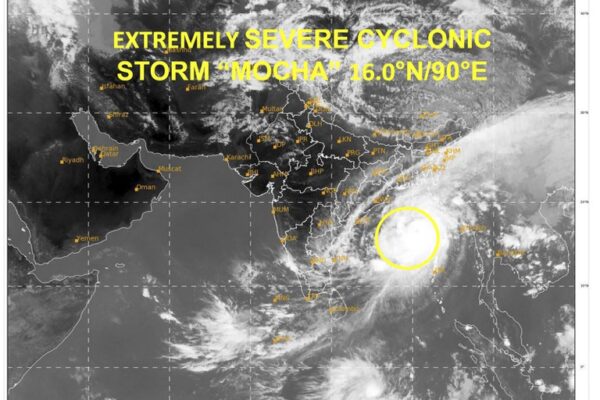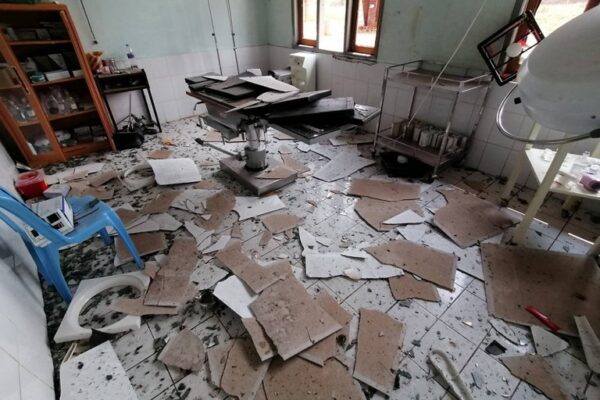Nearly 400 feared dead after Cyclone Mocha hit Myanmar’s Rakhine state
Nearly 400 Rohingya refugees in Myanmar’s Rakhine state were probably killed by Cyclone Mocha, the country’s parallel National Unity Government and local aid workers told RFA Tuesday. The NUG said the figure was based on estimates of the damage, since search and rescue teams have not retrieved the bodies and many victims are still missing. The figure has not been independently verified by RFA. Volunteers from the Muslim Aid and Relief Society who are collecting field data said most of the dead were children, pregnant women and the elderly. They said they are still searching for bodies. Aung Kyaw Moe, a Rohingya advisor to the National Unity Government, told RFA Tuesday the majority of the victims were from Sittwe township. “Some are still missing. This is in Sittwe alone,” he said. “Bodies were found on the streets and under trees. Search and rescue has not been done yet so we can’t pick up the bodies. All the refugee camps were badly damaged.” He said that the actual number of casualties could be much higher. ‘Refugee camps are open-roof prisons’. There are 21 Rohingya refugee camps in Rakhine state with 120,000 refugees staying in 13 camps in Sittwe township. Nay San Lwin, co-founder of the Free Rohingya Coalition, said the refugees were housed in makeshift tents which were mostly destroyed when the cyclone hit. “Most of the Rohingya refugee camps did not have time to evacuate [ahead of] the cyclone,” he said. “Lives are lost when there are no shelters to evacuate the cyclone. The tents were destroyed. Refugee camps are open-roof prisons.” Residents of Sittwe township said that most of the camps were built close to the sea, leaving them vulnerable to heavy waves, coastal winds and torrential rainfall. Nearly 1 million Rohingya were forced to leave their homes in Rakhine state following a military crackdown against the Muslim-minory in 2017. About 740,000 fled to Bangladesh and live in Cox’s Bazar, also hit hard by Cyclone Mocha. Those who remained live in internally displaced persons camps, poorly funded by the junta and volunteer groups. Collecting information on cyclone victims has been hard because there are only a few volunteers from the Muslim community collecting data in the field, a member of the data collection team told RFA, speaking on condition of anonymity. It is also hard to collect data on the ground after Sittwe’s largest telecommunications tower collapsed when the cyclone hit it on May 14, cutting phone lines and internet access. RFA’s calls to the junta spokesman for Rakhine state, Hla Thein, went unanswered Tuesday. Cyclone Mocha hit Myanmar’s coast Sunday with sustained winds reaching over 220 kilometers per hour (137 mph). According to preliminary figures compiled exclusively by RFA, there have been at least 30 deaths due to the cyclone in Rakhine and Chin states, and Ayeyarwady, Magway and Sagaing regions . Rakhine state and Ayeyarwady region were hit hard by Cyclone Nargis in 2008, leaving nearly 140,000 people dead or missing. Translated by RFA Burmese. Edited by Mike Firn.






